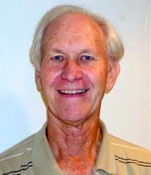
 Walter G. Moss
Walter G. Moss
Born into a Catholic blue-collar family in Cincinnati, Ohio in 1938, I received my Ph.D. in Russian Studies and History from Georgetown U. in 1968. I taught history for more than four decades, mainly at Eastern Michigan University, before retiring in 2010. I detail my progression from my youthful Catholicism to my present deist-leaning agnosticism in an online essay, where I write:
Although I no longer consider myself an adherent of any specific religion, I still feel the need for a guiding principle in my life, and it has become the concept of wisdom. I seek to become wiser and have my actions be as wise as I can make them. . . .
Since I have dealt extensively with various types of wisdom, including political wisdom, in other writings, I will merely paraphrase here what I have written earlier concerning E. F. Schumacher’s thoughts on wisdom:
It can be found amidst the ideas of the great religious and philosophical systems of the pre-modern age. It deals with fundamental questions like “What is the purpose of life?” and how to discover and achieve Truth, Goodness, and Beauty.
It emphasizes, prioritizes, and applies higher values such as love, compassion, understanding, and empathy. Being guided by it is the key to dealing with our most serious problems, whether economic, environmental, political, or personnel.
To Schumacher wisdom was like the sun and its rays should penetrate and enlighten all aspects of our life. “Unless that person has sorted out and coordinated his manifold urges, impulses, and desires, his strivings are likely to be confused, contradictory, self-defeating, and possibly highly destructive. The ‘centre,’ obviously, is the place where he has to create for himself an orderly system of ideas about himself and the world, which can regulate the direction of his various strivings.”
My most recent book is An Age of Progress? Clashing Twentieth-Century Global Forces (Anthem Press, 2008). Excerpts from it are available online regarding violence/war and wisdom. Information about other publications, including many on Russian history and culture, and links to many of my essays can be found at http://people.emich.edu/wmoss/pub.htm.